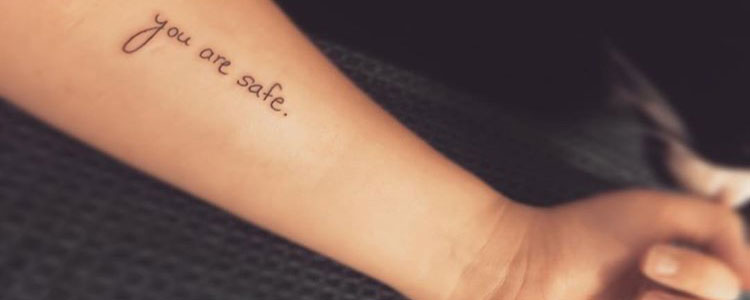For so long, I existed in what I thought was a gray area. The entity I can now recognize as diet culture was guiding me for my whole life, or at least beginning from the moment I understood that hating my body was commonplace. As a child, I considered the images and perspectives from TV, movies, magazines, and real-life conversations and decided that diets were good. Being on a diet would make me good. Exercising would make me good, and it would all make me smaller.
As a teen I took on some habits around food and exercise that I didn’t recognize as dangerous. Come college, I was actively and enthusiastically campaigning against the shape of myself, diving into a restrict-binge cycle and exercise obsession that lasted for years. No need to worry, though, I thought. This was dieting, so this was good. I was getting smaller, so that meant I had it together. It was all so completely normal to me. The emotional havoc I put myself through every single day and the extremely low self-worth had to be normal, too. It’s how I’m supposed to act around food and fitness, I’d convince myself. It’s the only way to become acceptable.
After college, I was in a blur of realizing something may be wrong, but constantly second guessing myself. I would tell myself I wasn’t sick enough to have an eating disorder, and I certainly didn’t need any help from a therapist. But, I became curious. The symptoms were coming back full force after I thought I’d “fixed myself.” I went to Google, typed in “eating disorder test” and clicked on one of the first results. The National Eating Disorders Association Screening Tool.
Admittedly, I was reluctant to believe that an online screening tool could tell me anything about myself. But I quickly realized that I was being asked the questions I’d only slightly wondered in isolation up to that point. Here was this laptop screen, trying to know more, and giving me a safe space to share my secret. I answered questions regarding what I worried about, what I thought about, how my actions made me feel.
It wasn’t, as I’d feared, questions about my physical health. I knew that anyone looking at me wouldn’t think I had an eating disorder, if they only went by the depictions of eating disorders in popular culture. That’s one of the major things that stopped me from seeking help for so long. No major physical health changes had happened since I started losing weight, but the screening tool didn’t seem to want to know about that up front. It was about my behavior around food and my body, and that was what was robbing me of sanity for so many years.
The page loaded after I hit submit, and I read “You may be at risk.” I took the test again. “You may be at risk.” I visited the NEDA website many times in the next few weeks and shortly following that I had my first free 15 minute phone consultation with the therapist that would become the most important person in my eating disorder recovery journey.
NEDA’s Screening Tool provided me a glimpse into reality. Operating on a daily basis with disordered eating made me believe that what I was doing, thinking, feeling, worrying about was all “normal”. And if I never had a stable relationship with food, how would I know the difference?
Sitting down with my laptop that day was a pivotal moment in not only my recovery, but my overall identity and ability to see the importance of eating disorder awareness and advocacy. I’ll always be grateful for that.
Britt is a mental health, body acceptance, and anti-diet advocate. She is working toward her EdM and license in psychological counseling at Teachers College, Columbia University, with special interest in emerging adults’ identity development and addictive behaviors. You can find her sharing her journey with mental illness, making music, doodling, and commentating on her favorite teen dramas @brittoswald on Instagram and Twitter.






